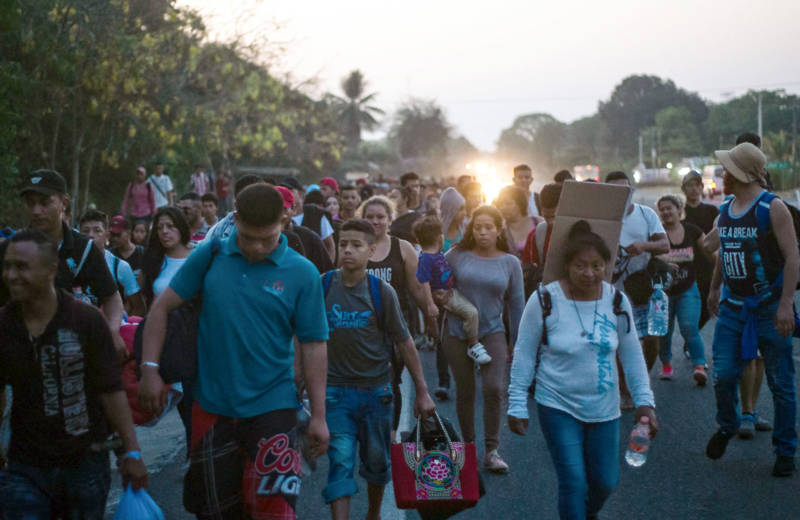Still, Pierce said the shutdown of this program — for people to be processed in their home countries — contributes to the wave of Central American families and unaccompanied minors arriving at the U.S. border to ask for humanitarian protections.
“If anyone in El Salvador, Guatemala, Honduras wants to apply for asylum in the United States, they need to travel to the U.S. border,” she said.
Top U.S. Customs and Border Protection officials say the agency’s capacity is overwhelmed by the number of children in family units or traveling on their own in their custody, which they call “an unprecedented humanitarian and security crisis.”
Last month, Border Patrol agents apprehended nearly 9,000 unaccompanied minors and 53,000 migrants in family groups — more than any month since the government began tracking children traveling with parents.
While people living in Central America have other avenues to pursue humanitarian protections in the U.S., such as through the United Nations High Commissioner for Refugees, experts say that, practically speaking, those rarely succeed.
After Santos and other parents sued to restart their children’s applications, immigration officials told the federal court last week that the earliest they could issue travel documents is late October. They will need to collect medical examinations and background checks in each case that is still eligible, and reopen facilities and contracts that had been shut down.
A spokeswoman with U.S. Immigration and Citizenship Services declined to comment on the settlement or plans to implement it.
But plaintiff attorney Daniel Asimow said the new government timeline is not fast enough for the 2,700 minors covered in the lawsuit who are still facing danger in Central America.
“The government does face some challenges, and we are sympathetic to that,” said Asimow, whose law firm is based in San Francisco. “However, we think there are some steps that potentially could be expedited.”
For example, Asimow said only five doctors in El Salvador were approved to conduct the necessary medical exams.
“So we are going to talk to the government to see if there’s any way to get more doctors on contract to speed up those steps,” he said.
Santos, sitting on a couch in her immaculate apartment, said she feels hopeful once again that she and her family will reunite in the Bay Area.
“I have faith that this time, we’ll be able to be together soon,” she said.
